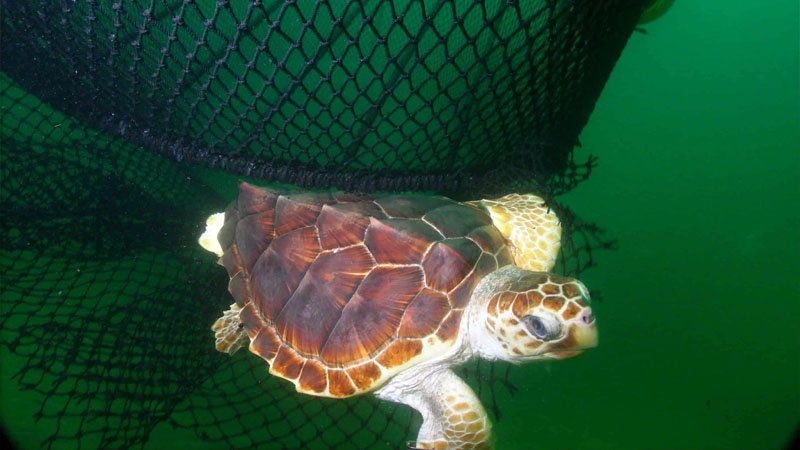Exclusive content

Fishermen in India have called on the government to address the ongoing restrictions imposed by the United States on Indian seafood exports, specifically shrimp. These restrictions are centered around the requirement for Turtle Excluder Devices (TEDs) in fishing nets, a device designed to allow sea turtles to escape when caught. While the intention behind TEDs is to protect sea turtles, Indian fishermen argue that these regulations are unnecessary and harmful to their industry.
Concerns Raised by the Southern Shrimp Alliance
The Southern Shrimp Alliance in the U.S. has been vocal about the TED requirements, consistently raising the issue as a means of protecting sea turtles. However, Matsya Thozhilali Aikya Vedi, an independent trade union of fishermen based in Kochi, claims that the concerns are driven by the financial interests of the shrimp industry in the U.S., rather than genuine environmental concerns. They argue that the risk to sea turtles is minimal in most Indian trawling grounds.
The fishermen’s union emphasizes that sea turtles are rarely caught in fishing nets off the Indian coast, with the exception of the Orissa coast where sea turtles are more prevalent. Charles George, a representative of the union, pointed out that Orissa already imposes a ban on trawling during the sea turtle spawning season, effectively protecting the turtles during their most vulnerable period. He also noted that there have been no reports of sea turtles being caught in nets off the Kerala coast.
Economic Consequences of the Trade Ban
Several seafood processors have faced financial difficulties, with some even shutting down due to the trade ban. According to Charles George, sea-caught shrimp contribute approximately INR 20 billion (USD 239.57 million) to the total shrimp export value of INR 670 billion (USD 8.03 billion). The restrictions have also forced Indian shrimp exporters to sell their products at lower rates to other importers, such as China, Japan, and European Union countries.
Fishermen and industry representatives are urging both the State and Union governments to take swift action to protect the shrimp industry and the livelihoods of local fishermen. They argue that the government’s approach has been lackluster and insufficient in addressing the challenges posed by the U.S. restrictions.